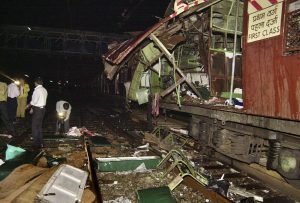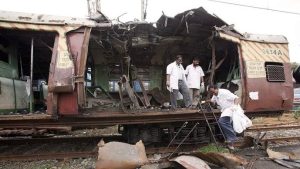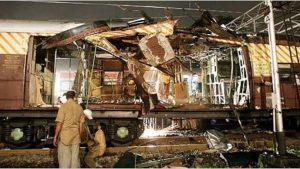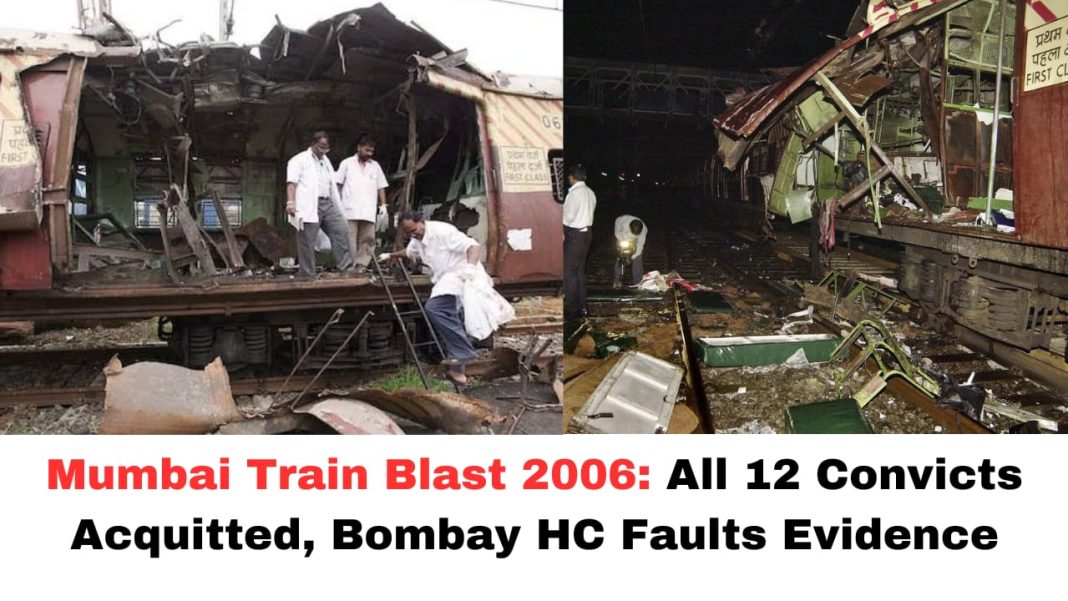Digital News Guru Mumbai Desk:
Bombay High Court Quashes 2006 Mumbai Train Blast Convictions
On July 21, 2025, the Bombay High Court delivered a seminal judgment acquitting all 12 individuals convicted in the 2006 7/11 Mumbai train blasts case, overturning the special MCOCA court’s 2015 verdict. The court also refused to confirm the five death sentences handed down to five of the accused—resulting in their complete exoneration after nearly two decades in custody.
Flawed Evidence & Weak Prosecution
Chief among the court’s findings: the prosecution had “utterly failed to prove” its case. The bench, comprising Justices Anil Kilor and Shyam Chandak, described the trial process as “very abnormal,” pointing to forced confessions, unreliable eyewitness testimonies, and mishandled forensic evidence. They declared: “It is hard to believe that the accused committed the crime. Hence their conviction is quashed and set aside.”

Notably, witnesses identified suspects several years after the attacks—some waited over four years before naming anyone—a pattern the court flagged as deeply suspicious. The attempted reconstruction of the explosives chain also suffered, with judges questioning whether key forensic exhibits (like RDX samples) were ever reliably preserved or linked to the blasts.
Nearly 19 Years Behind Bars
The train attacks on July 11, 2006, involved seven synchronized bomb blasts on Mumbai’s Western suburban railway, killing 189 commuters and injuring over 800 during evening rush hour. The convicted group included alleged members of militant outfits such as SIMI and Lashkar-e-Taiba, accused of targeting first-class compartments in retaliation for the 2002 Gujarat riots.
Following the 2015 special court verdict, five individuals—Faisal Shaikh, Ehtesham Siddiqui, Naveed Khan, Kamal Ansari, and Asif Khan—were sentenced to death. The remaining seven received life imprisonment. One of the convicts—Kamal Ansari—later died of COVID-19 in 2021 while still incarcerated.
Their release order, effective immediately, allows all 11 surviving men to walk free, assuming they are not detained in other ongoing cases.
Political Fallout
Maharashtra Chief Minister Devendra Fadnavis harshly criticized the ruling, calling it “very shocking,” and confirmed the state will appeal to the Supreme Court, suggesting the legal battle may intensify..
Judicial Evaluation: Where It All Went Wrong
The High Court took aim at several critical flaws in how the investigation and trial unfolded:
- Forced confessions: Allegedly secured under duress, rendering them legally and morally invalid.
- Manipulated eyewitness identifications: Witnesses waited years before naming the accused—an identified pattern deemed prejudicial by the court.

- Lapses in forensic integrity: No credible proof that evidence seized (like explosives) matched blast material; chain of custody was inadequately maintained.
- Inadequate prosecutorial scrutiny: Judges cited “non‑application of mind”—the evidence was neither coherent nor persuasive enough to meet the legal standard of proof beyond reasonable doubt.
Summary Table
| Category | Details |
| Attack Date | 11 July 2006 – Coordinated blasts on Mumbai’s suburban railway |
| Casualties | 189 deaths and over 800 injured |
| Original Verdict (2015) | 12 convicted (5 death penalties, 7 life sentences) |
| High Court Verdict (2025) | All 12 acquitted; death sentences not confirmed |
| Bench | Justices Anil Kilor & S. C. Chandak |
| Key Issues Identified | Forced confessions, unreliable witnesses, forensic chain-of-custody failures |
| Government’s Response | Maharashtra gov’t to appeal the verdict in the Supreme Court |
What Lies Ahead
- Supreme Court appeal: The Maharashtra government has already signaled intentions to challenge the verdict—any reversal could reopen the legal fight.
- Case precedence: Activists and defense lawyers may use this verdict to contest other alleged forced-confession cases in India.
- Accountability push: Public debate is likely to advance around procedural accountability in terror-related investigations to prevent miscarriages of justice in future cases.

Final Reflections
The Bombay High Court’s July 2025 ruling closes a long and troubled chapter in India’s legal annals. After nearly 19 years under conviction for one of the nation’s worst urban terror incidents, 11 men are now free—acquitted not due to innocence, but because the state failed to prove their guilt beyond reasonable doubt.
The verdict raises fundamental questions: Can justice delayed still be justice? And when the system lets both victims and the accused down, where does accountability lie? As the case possibly moves to the Supreme Court, one thing is clear: India’s quest for procedural justice remains unfinished—and the lessons from this ruling will echo across its judicial landscape for years to come.
You May Also Read: DU UG Admissions 2025: Over 3 Lakh Applicants, 71K Seats, Round 1 CSAS Allotment Explained








